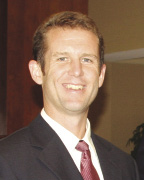As we turn the clocks ahead the sun shines brighter and winter slowly turns to more winter. That's how it's starting to feel in New England these days. That said, slowly but surely harbingers of spring are popping up everywhere you look. A winter's worth of trash slowly emerges from eroding, black snow banks; pedestrian "slip and falls" reach record highs as black ice grips sidewalks while the Bruins provide a needed distraction as they ready themselves for another deep run at the Stanley Cup. Finally, HELP is on its way as hospitality experts gear up for another successful hotel investment conference in Boston.
Forecast Looks Great!
Similar to the Bruins, the hotel industry continues to perform at an exceptional level. PKF Hospitality Research, as outlined in their March 2014 "Horizon's Report," made a great case for continued growth in the sector. PKF-HR is projecting 12.7% increase in unit-level hotel profits (NOI) in 2014 and another 14.5% in 2015. This will cap a five year run of double-digit gains on the bottom-line, a span not seen since the 1970s.
Furthermore, PKF-HR is forecasting ADR to increase by 4.9% in 2014 and another 5.7% in 2015. "As we know, ADR has a 20% greater effect on NOI change than occupancy. Therefore, with ADR driving revenue per available room (RevPAR) growth the next few years, we continue to view the current time period as one of the most profitable in the history of the U.S. lodging industry," Mark Woodworth of PKF-HR said.
What Happens Next?
So, the future looks bright. According to PKF, and others, we are out of the Great Recession and making our way back to the "go-go" days of the 2007. That being said, where should hotel investors, owners and operators be spending their time to make the most of their opportunities? What threats exist and how do companies mitigate risk? What makes this investment "window" better than past cycles? There are no "silver bullet" answers to any of these questions. Like any real estate investment one needs to find a terrific location in a solid marketplace. Once the real estate is secured, assembling an experienced team of professionals with proven track records and high levels of integrity is critical to executing according to plan.
Key Investment & Development Considerations:
* Location: Fundamental but critical despite the age of GPS and Google Maps. "Location" today not only means the distance from the exit ramp but also safety and "walkability," access to compatible uses like restaurants, office and retail, public transportation and adequate parking.
* Brand: Following location, the hotel brand is the biggest decision. Experienced hotel equity investors and lenders typically play within specified brand categories with the proven ability to drive cash flow and demand low cap rates from buyers. Ask yourself, what are your expected returns during your ownership period and what is the exit strategy? Finally, determine what brands are available and which one is best suited to capture market share within the competitive set while also drawing off of secondary competitors in adjacent markets.
Build New, Acquire
or Adaptive Reuse?
Broadly speaking, these are the three hotel development options. Each one is capable of either delivering outstanding returns or missing expectations, just like any investment.
* New Build: New build opportunities are returning in a meaningful way, not 2007 levels, but when you speak to franchise sales professionals they tell you how busy they are selling licenses. In addition, lenders are back at the table although unlike 2007, they are demanding more equity, completion guarantees and personal recourse. When the site and market are solid, a national brand is available and the sponsorship team is strong deals are getting done.
* Acquire: Outside of REIT investors, most acquisitions today are by experienced owner/operators purchasing hotels in need of heavy renovations and professional management. "Value ad" deals and deep repositioning projects are the handiwork of experience hotel developers, owners and operators. High performing, nationally branded hotels with strong cash flows are typically bought by REIT and other institutional owners at low cap rates
* Adaptive Reuse: Urban office buildings, broken condo deals and historic structures are all great examples of buildings that developers target for hotel conversions. Each building type lends itself to a hotel conversion but do not expect a huge savings in development costs. Typically, due to the complexity of the design and construction, the deals pencil out close to the cost of new, ground up developments.
Summary
By the time the snow melts, the streets are swept and the Bruins secure the #1 seed in the Eastern Conference, many of the nation's leading hotel professionals from New England, the northeast and the nation will descend upon the city of Boston for the annual HELP Conference on April 7th-8th at the Seaport Hotel. Whether you are a seasoned hospitality pro, savvy real estate investor or a "newbie" to the industry I urge you to attend. A world class conference in a relaxed, social setting is an ideal spot for sharing best practices and closing deals!
David Roedel is a partner with Roedel Companies, LLC, Wilton, NH.
Tags:
As spring approaches the hotel industry continues to perform at an exceptional level
March 27, 2014 - Spotlights









.png)